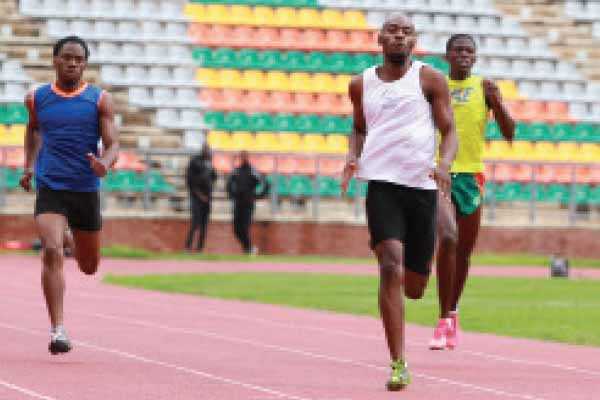IAAF in major anti-doping shakedown
The Botswana Athletics Association (BAA) and its counterparts elsewhere will suffer the consequence of their players’ violation of Athletics Integrity Unit (AIU) ethical standards, following the revised anti-doping rules by the International Association of Athletics Federation (IAAF).
Earlier this month the AIU announced the categorisation of the National Federations under the new Article 15 of the IAAF Anti -Doping Rules, which was previously approved by IAAF council in July. According to a recent AIU press release, the rules put in place an advance framework for the fight against doping in athletics. The new rules will hold IAAF affiliates accountable if their athletes test positive for banned substances.
The previous arrangement saw individual athletes face the wrath of the IAAF on their own when they tested positives. The BAA recently experienced high profile doping cases that included 400m women runners Amantle Montsho and Lydia Jele. “The new rule, which comes into force from January 2019 makes National Federations accountable for assisting in the fight against doping and for ensuring appropriate ant-doping measures are in place in their respective jurisdictions. Obligations under the previous IAAF Anti-Doping rules largely rested with individuals, while the obligations of the
National Federation are themselves limited,” reads a press release from the AIU. “Under the new rules, National Federations are categorised annually by the AIU board in three different categories being A, B and C-according to the factors that have been considered for determining the doping risk to the sport (category A having the highest doping risk to the sport and Category C being the lowest).”
Botswana is currently in category B.
Furthermore, the AIU states that National Federations are subject to a set of general obligations that are imposed on all Federations and to a set of specific obligations that are imposed on each category of federation.
“Improving the integrity of athletics requires a collaborative effort from the entire industry and these new rules ensure that National Federations who send teams to represent them at international events are playing their part,” said AIU Chairman David Howman. “It is important to remember that the categorisation that reflects the risk to the sport from doping in each jurisdiction and such risk may exist for many reasons. This innovative rule will help ensure lasting and meaningful change in athletics and make sure the public confidence in the integrity of the sport is maintained.”
In addition, Howman said the implementation of the rules will give athletes assurance that anti-doping obligations no longer fall on them alone. Meanwhile, a source close to the matter said the BAA and other National Federations should be taking responsibility of anti-doping and not relying on organisations like the Botswana National Olympic Committee (BNOC) regarding the matter.
“The National Federation should now take responsibility and it will be interesting to see how they rise to the occasion. The problem is that Botswana has world class athletes but they do not have world class sports administrators,” said a source who spoke on condition of anonymity.“We recently had a doping case of 400m runner Lydia Jele and she is unlikely to be the last athlete who tests positive. We have up and coming young athletes and they will need a lot of support in this regard.” The source further said National Federation budgetary provision will have to cater for anti-doping following the AIU announcement.
“In most cases, National Federations seek sponsorship for competitions only but now they will have to include a budget for anti-doping so that they promote clean sports. The IAAF is also under pressure as their sponsors demand to promote clean sports. This means the IAAF will put their affiliates under pressure and National Federations will ensure that their clubs comply.”
For his part the BAA spokesperson, Ipolokeng Ramatshaba said he is yet to familiarise himself with the revised AIU anti-doping rules. Nevertheless, Ramatshaba said he is aware that the IAAF has placed countries in three categories to consider their doping risk. I am aware that Botswana is in category B. According to Ramatshaba, the BAA is ready and compelled to address doping issues, adding that they have been educating local athletes on the matter.






